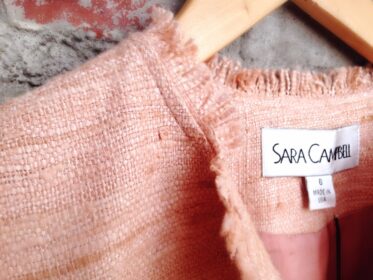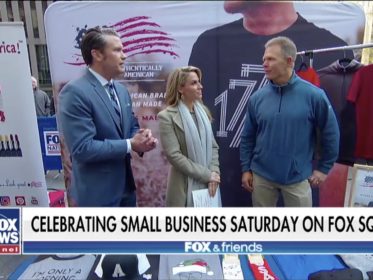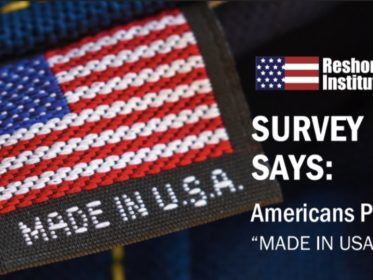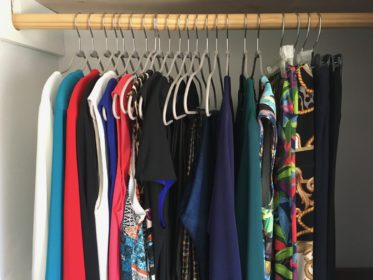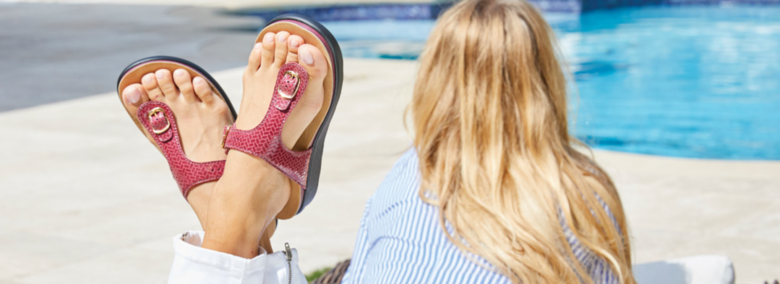
I pulled into a small shopping mall and noticed a store front that still had a shadow of its former tenant: Bass Shoes. Remember them? Officially known as G.H. Bass & Co., the company was founded in 1914 by George Henry Bass; the factory, located in Wilton, ME, closed in 1998.
The brand was bought and sold several times and is currently owned by G-III Apparel Group, a US apparel company that’s traded on the NASDAQ and owns close to two dozen high-profile brands.
While you can still buy classic Bass Weejuns, the shoes aren’t made in the USA. Or at least, I’m assuming they’re not because if they were, the website would be trumpeting that fact.
Due to all the shoe factories closing, buying shoes made in the US is tough. Over the years, I’ve discovered Munro Shoes, a family-owned company based in Arkansas. They make their shoes in the USA of imported materials, but you have to carefully check product descriptions when purchasing.
Eastland Shoes, located in Freeport, ME, expanded their manufacturing to China and Brazil in 1990. Their website reads, “Eastland has been designing timeless footwear since 1955” — with “designing,” not “manufacturing,” being the key phrase.
Of course, we still have New Balance, but even their MADE in USA Collection contains a domestic value of 70% or more — meaning, they don’t meet the FTC’s guidelines for true “Made in USA” messaging (meaning all or virtually all of a product is made here).
I have purchased from their Made in USA line, but you can’t wear athletic shoes everywhere, ha!
Because of the limited availability of high quality Made in USA shoes, I made do with what I had, until stuff started wearing out. By summer 2017 I desperately needed new sandals . . . and finally discovered San Antonio Shoemakers.
Actually, I knew about them but had always associated the brand with old ladies, because it seemed to me that’s who usually wore them.
But after perusing their website, I thought, “Oh wow, they’ve definitely upped their game.”
Still family-owned and made in Texas — and also Italy
The company, founded in 1976 with 13 shoemakers and no marketing to speak of, manufactures full lines of men’s and women’s shoes: dressy, casual, work and athletic. Today, the company sells its products in over 200 countries and is still family-owned. Even better, these shoes are hands down the most comfortable shoes you’ll ever wear.
Almost all of the shoes are made in the USA, with their dress shoe line made in Italy. According to the website, when the company decided to create its first pump, they found a small multi-generational family-owned company with a heritage and love of crafting fine leather shoes similar to SAS.
Working together, the two companies “developed a unique approach that embraces the best of Italian design and SAS comfort. Within our line of dress shoes, any particular style or color may be manufactured in the U.S., or Italy, or both locations.”
After wearing my first pair of sandals and walking all over NY in them, I bought two more, plus a pair of their “work shoes” that were perfect for walking miles around the IMTS trade show in Chicago one year (and factory tours, too). For the first time, my knees didn’t hurt.
Today, I own nine pair of SAS shoes, including athletic shoes, sandals, and one very dressy pair from their Made in Italy line. I live in their sandals all summer long because they’re comfortable. Most important, I can walk in them without my feet hurting.
Five stars and highly recommended! You can view the extensive product line at:
www.sasshoes.com
Update!
A colleague on LinkedIn alerted me to Hilos — fabulous and comfortable shoes made in Portland, OR. She said she ordered her first pair and that they’re very comfortable. Website: https://hilos.co
Get the Keep It Made USA newsletter.
Twice monthly; zero spam.
Full Disclosure
I’m not paid nor asked to write about products or the companies that make them. All links in this piece are FREE — meaning, they’re not sponsored or paid for. I buy products, use them, and if I like them, I tell everyone about them.
I do this because my mission is to keep manufacturing jobs stateside. This mission is my way of giving back. We like to think our “small” choices won’t make a difference. They do.

